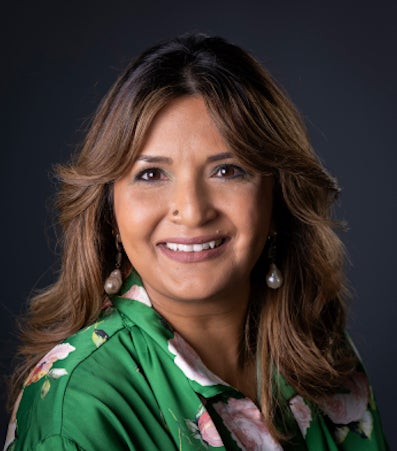Mixed Classroom
VU Mixed Classroom Educational Model
As Vrije Universiteit Amsterdam, we want students to acquire competences that will help them to navigate, understand and thrive in a world that is increasingly dynamic. The VU Mixed Classroom Educational Model aligns student learning with the VU educational vision, which is centered around the values personal, open and responsible. It gives teachers practical tools to create and stimulate an inclusive learning environment.
About Mixed Classroom
-
What is the VU Mixed Classroom Educational Model?
The VU Mixed Classroom Educational Model is an educational approach that builds upon differences to enrich the learning experience for all students present. Capitalizing on differences does not mean compromising between different perspectives or merging them into one uniform perspective. Instead, we use the differences and possible tension between perspectives to stimulate critical thinking, develop analytical skills, and generate creative solutions.
The VU Mixed Classroom Educational Model is built on a three-phase process through which students learn how to capitalize on different perspectives, within the classroom. Watch this video in which a student and academics come together to talk about the use of the Mixed Classroom model in education at Vrije Universiteit Amsterdam.
-
Why a VU Mixed Classroom Educational Model?
As Vrije Universiteit Amsterdam, we want students to acquire competences that will help them to navigate, understand and thrive in a world that is increasingly dynamic. The Educational Model aligns student learning with the VU educational vision, which is centered around the values personal, open and responsible.
Personal refers to the appreciation of students’ (and teachers’) personal, unique identities, talents and contributions. Open expresses the value placed on diversity in the broadest sense, the recognition that the interaction of a wide range of people and perspectives strengthens learning processes. Responsible touches on the importance of societal responsibility, which involves individuals taking a stance with regard to societal challenges, while keeping an open mind for other perspectives. Although most teachers will agree with these core values, the translation into concrete classroom practices can be a challenge. How do we create an atmosphere where students and teachers can bring their own identities into the classroom? How can we invite differences to the surface in safe ways? How do we go about exploring them? How do we debate academic values if emotions sometimes run so high that students—and teachers—stop listening to each other? The VU Mixed Classroom Educational Model offers strategies and learning activities to deal with these challenges. -
The phases
We distinguish between the following phases, taking place in the classroom:
- Sensitizing students to their own frame of reference and the existing diversity in the classroom, and creating a safe learning environment to do so
- Engaging students to interact constructively with different perspectives present in the classroom
- Optimizing every students’ learning process by capitalizing on different perspectives
Focusing on each phase has its own challenges, but certainly also has its own rewards.
-
Projects and activities concerning the VU Mixed Classroom Model
Mixed Classroom in Practice workshop series
To support teachers implementing the VU Mixed Classroom Educational Model, we organize Mixed Classroom in Practice workshops.As educational framework we use the newly developed Mixed Classroom Educational Model VU, which focuses on the eventual outcome of students being able to capitalize on different perspectives within the group. To reach that goal, we follow the three phases as defined in the Mixed Classroom Educational Model. We look at students’ wish for a sense of belonging, possibilities of identification, complex group dynamics and implicit associations.
A certificate will be handed out after completing a portfolio consisting of, amongst other things, a presentation of a peer-reviewed paper/article that addresses an aspect of the Mixed Classroom, a reflection on a “hot moment” (how to deal with tension or conflict because of diversity) and the design of an intervention that will show an application of the insights within the Mixed Classroom Educational Model.
Teachers can sign up here for upcoming workshops (max. of 15 participants per edition).
Reflection sessions Mixed Classroom
Reflection sessions on the Mixed Classroom will be organized in collaboration with the Network for Teaching and Learning or directly with Faculties. During these two-hour sessions, we explore real-life cases from participants’ individual teaching practice in a safe and structured environment. The sessions are open to all teachers, to share best practices and discuss the challenges they face.Unpack Your Study Abroad
The Unpack Your Study Abroad (UYSA) programme has been designed and developed by VU Amsterdam’s International Office, in collaboration with the LEARN! Academy of VU Amsterdam. The programme is part of an exchange semester, and it was designed according to VU Amsterdam’s Mixed Classroom principles. It was developed to support and enhance students’ ability to make successful cultural adjustments and to optimize their preparations for a semester abroad. The programme is divided in three phases: before, during and after exchange. Students will become acquainted with the theoretical concept of culture, while also experiencing a new country first-hand during their exchange. By completing the assignments for each phase of their exchange in their e-Portfolio, students will learn how to reflect upon their experiences and how they can use the competences obtained abroad upon their return.
Contact us
To find out more about the VU Mixed Classroom Educational Model and/or how to implement it, please contact us:

